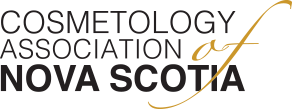The Nova Scotia Cosmetology Act, 2012, c. 39 (the “Cosmetology Act”) and its By-Laws are pieces of legislation by which the Association is guided. These legal documents outline the criteria required to become a member of the Association. Members are industry professionals such as Hairdressers, Estheticians, Nail Technicians, Make-up Artists, and Eyelash Technicians.
 COSMETOLOGY ACT
COSMETOLOGY ACT(as of February 2026)
CLICK HERE
 BY-LAWS
BY-LAWS (as of February 2026)
CLICK HERE
 POLICIES & PROCEDURES
POLICIES & PROCEDURES(as of February 2023)
CLICK HERE
 ADDENDUM SCHEDULE B FEES
ADDENDUM SCHEDULE B FEES(updated Oct/2023)
CLICK HERE
 Certificate of Resolution of ByLaw Amendments
Certificate of Resolution of ByLaw AmendmentsCLICK HERE
 MINISTERIAL APPROVAL
MINISTERIAL APPROVAL(November 23, 2022)
CLICK HERE
Safe Body Art Act
The Safe Body Art Act and regulations help to ensure safe practices for businesses offering services like tattooing, piercing, and microblading.
Please note: The Cosmetology Association does not enforce the Safe Body Art Act. For more information regarding the Safe Body Art Act, please contact the Nova Scotia Department of Environment and Climate Change.
Please note: The Cosmetology Association does not enforce the Safe Body Art Act. For more information regarding the Safe Body Art Act, please contact the Nova Scotia Department of Environment and Climate Change.
To view the Safe Body Art Act click here.To view its Regulations click here.
Please note: The Cosmetology Association of Nova Scotia does not provide permits for services that fall within the jurisdiction of the Safe Body Art Act.
The Association will, however, offer information during an inspection regarding the Safe Body Art Act to its Members, salons, and spas.
A list of services covered under the Safe Body Art Act are noted below.
- Microblading and Microneedling
- Permanent and Semi-Permanent Make-up
- Tattooing
- Piercing
